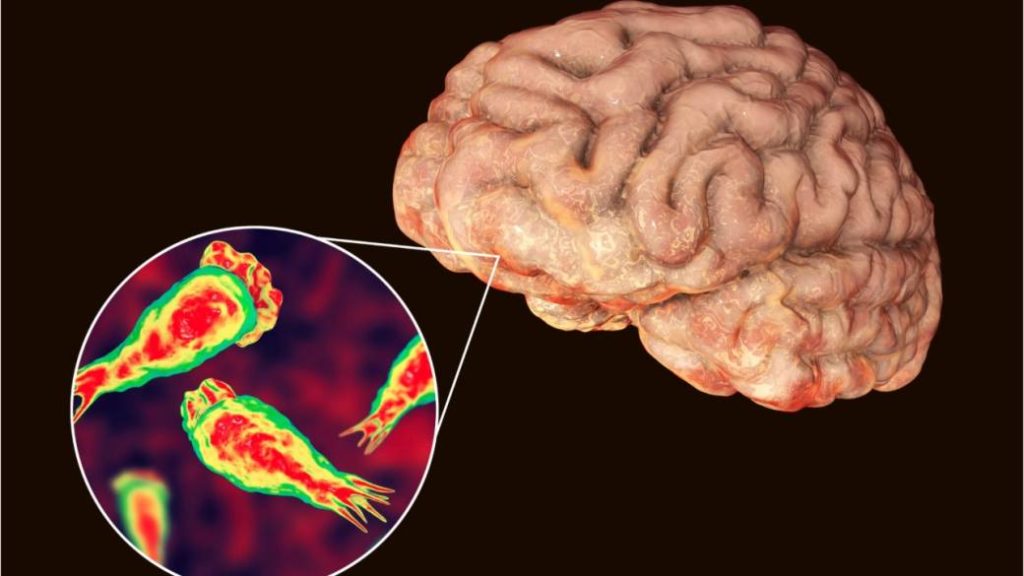People in the US get infected with rare brain-eating amoeba, here is more to this
By Purvi Jain

Health officials of Florida have recently revealed that a person is infected with a rare and deadly brain-eating amoeba.
As for the Department of health, the person has been contracted Naegleria fowleri in Hillsborough County.
The department informed on Friday that Naegleria fowleri is a microscopic single-celled living amoeba.
This amoeba can lead to rare infections of the brain called primary amebic meningoencephalitis (PAM) which destroys the tissues of the brain and this usually fatal.
As per the health officials, it is commonly found in warm freshwater areas such as lakes, ponds, and rivers.
Infection can be caused when the contaminated water enters through the nose. Once it enters through the nose, it reaches to brain and causes PAM.
The Health Department said, “It is essential to seek medical attention right away as the disease progresses rapidly after the start of symptoms.”
The symptoms include headaches, fever, vomiting, loss of balance, or hallucinations after swimming in warm freshwater.
Officials said this infection occurs when the temperature increases for a long time. The main season of this to spread is of July, August, and September.
Amoeba is basically found in freshwater lakes and rivers but is more common to be found in southern states. Since 1962, only 37 cases with exposure have been reported in Florida.
Health officials also listed recommendations for those who are planning to swim freshwater bodies.
People are advised to ‘avoid water-related activities in bodies of warm freshwater, hot spring, and thermally polluted water such as water around the power plant.’
It’s also important to avoid water-related activities in warm freshwater ‘during periods of high water temperature and low water level.’
“Hold the nose shut or use nose clips when taking part in water-related activities in bodies of warm freshwater such as lakes, rivers, or hot spring,” said the officials.
At last, people should also avoid ‘digging in or stirring up the sediment while taking part in water-related activities in shallow, warm freshwater areas.’
